Table of Contents
The symbolism and meaning of Chinese food is a fascinating topic that reflects the rich culture and history of China. From the dumplings that represent wealth to the noodles that symbolize longevity, each dish has a unique story to tell. In this article, we will explore the symbolism and meaning of Chinese food, from its history to its cultural significance and regional variations. We will also discuss the role of Chinese food in Chinese culture and its future. Join us at Tauhuichiban.com as we delve into the delicious world of Chinese food and uncover its hidden meanings.
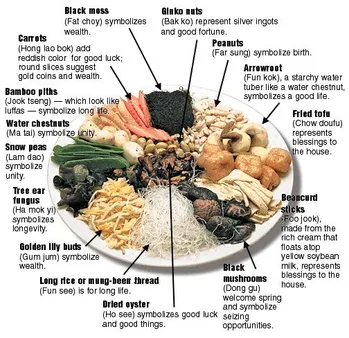
The Symbolism and Meaning of Chinese Food: Exploring Cultural Traditions Through Every Dish
I. The Symbolism and Meaning of Chinese Food
Meaningful Dishes
Chinese food has a rich and complex symbolism, with dishes representing a variety of different things. For example, dumplings are often eaten during the Chinese New Year to symbolize wealth and prosperity, while noodles are eaten for longevity. Other dishes have more specific meanings, such as dim sum, which is often eaten as a symbol of good luck and fortune.
Colors and Flavors
The colors and flavors of Chinese food also have symbolic meanings. For example, the color red is often associated with good luck and fortune, while the color white is associated with death and mourning. Sweet flavors are associated with happiness and joy, while bitter flavors are associated with sadness and sorrow. Chefs use these colors and flavors to create dishes that are not only delicious but also visually appealing and meaningful.
Color | Meaning |
|---|---|
Red | Good luck and fortune |
White | Death and mourning |
Yellow | Wealth and prosperity |
Green | Health and longevity |
Black | Power and authority |
Regional Variations
The symbolism and meaning of Chinese food can also vary depending on the region of China. For example, in the north of China, noodles are often eaten for breakfast, while in the south of China, they are more likely to be eaten for lunch or dinner. Additionally, the ingredients used in Chinese dishes can vary depending on the region, with some dishes using more spices and others using less.
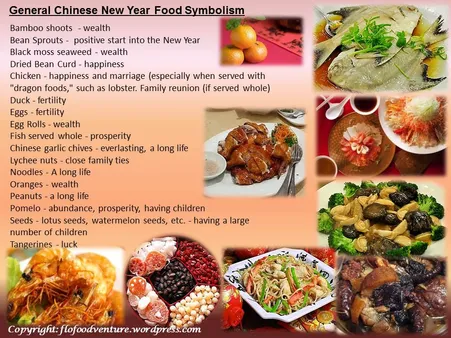
The Symbolism and Meaning of Chinese Food
II. The Cultural Significance of Chinese Food
In Chinese culture, food is more than just sustenance; it is a way of life. Each dish has a unique meaning and symbolism, reflecting the rich history and culture of China.
Dish | Symbolism |
|---|---|
Dumplings | Wealth and prosperity |
Noodles | Longevity |
Fish | Abundance and good luck |
Rice | Fertility and life |
Tea | Hospitality and respect |
Chinese food is also closely tied to festivals and celebrations. During the Spring Festival, for example, families gather to eat dumplings, a dish that symbolizes wealth and prosperity. At weddings, couples are often served noodles, which represent a long and happy marriage. And during the Mid-Autumn Festival, mooncakes are eaten to celebrate the harvest and family reunions.
- Dumplings are a popular Chinese dish that is often eaten during festivals and celebrations. They are made with a dough wrapper that is filled with meat, vegetables, or seafood. Dumplings are often steamed, boiled, or fried.
- Noodles are another popular Chinese dish that is often eaten during festivals and celebrations. They are made with a wheat flour dough that is rolled out into thin strands. Noodles can be cooked in a variety of ways, including boiling, steaming, or frying.
- Fish is a symbol of abundance and good luck in Chinese culture. It is often served at festivals and celebrations, and it is also a popular ingredient in many Chinese dishes.
- Rice is a staple food in Chinese cuisine. It is often served with other dishes, and it is also used to make a variety of snacks and desserts.
- Tea is a popular beverage in Chinese culture. It is often served at meals, and it is also used to make a variety of teas.
Chinese food is a delicious and diverse cuisine that is enjoyed by people all over the world. It is also a cuisine that is rich in symbolism and meaning, making it an important part of Chinese culture.
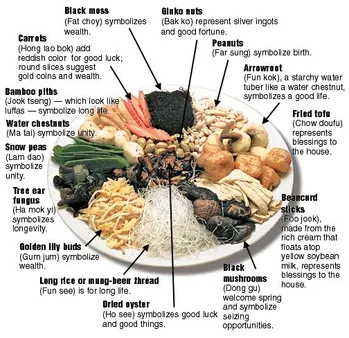
The Cultural Significance of Chinese Food
III. The Role of Chinese Food in Chinese Culture
Chinese food is more than just a meal; it is a way of life. Each dish has a unique meaning and symbolism, reflecting the rich culture and history of China. From the dumplings that represent wealth to the noodles that symbolize longevity, Chinese food is a feast for both the body and the soul.
In Chinese culture, food plays a central role in social gatherings and celebrations. It is a way to show hospitality, express affection, and honor guests. The act of sharing a meal together is seen as a way to strengthen relationships and build community.
Chinese Food Symbolism | Meaning |
|---|---|
Dumplings | Wealth |
Noodles | Longevity |
Fish | Prosperity |
Chicken | Good luck |
Pork | Strength |
Chinese food is also closely tied to the country's traditional medicine system. Many ingredients used in Chinese cooking are believed to have medicinal properties. For example, ginger is thought to help with digestion, while ginseng is said to boost energy.
In recent years, Chinese food has become increasingly popular around the world. This is due in part to the growing number of Chinese immigrants, who have brought their culinary traditions to their new homes. Chinese food is also becoming more popular as people become more interested in healthy and flavorful cuisine.
Whether you are a native of China or a newcomer to its cuisine, there is no denying the appeal of Chinese food. It is a delicious, nutritious, and culturally rich cuisine that has something to offer everyone.
Here are some tips for enjoying Chinese food:
- Be adventurous and try new dishes.
- Don't be afraid to ask for help if you are not sure what something is.
- Share your food with others.
- Enjoy the experience!
Chinese food is a delicious and versatile cuisine that can be enjoyed by people of all ages and cultures. Whether you are looking for a quick and easy meal or a special occasion feast, Chinese food is sure to please.
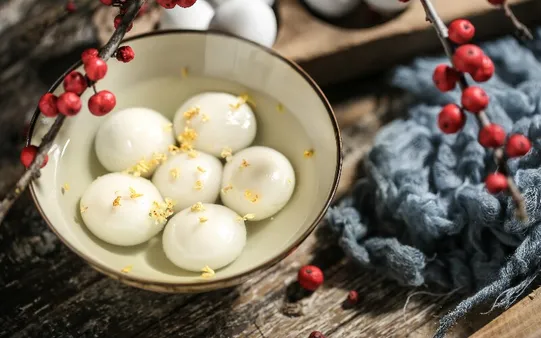
The Role of Chinese Food in Chinese Culture
IV. The Symbolism of Chinese Food
Chinese food is more than just a meal; it is a way of life. Each dish has a unique meaning and symbolism, reflecting the rich culture and history of China. From the dumplings that represent wealth to the noodles that symbolize longevity, Chinese food is a feast for both the body and the soul.
The symbolism of Chinese food is deeply rooted in Chinese culture. Many dishes are associated with specific holidays or festivals. For example, dumplings are eaten during the Chinese New Year to symbolize wealth and prosperity. Noodles are eaten on birthdays to symbolize long life. And mooncakes are eaten during the Mid-Autumn Festival to symbolize family reunion.
In addition to its cultural significance, Chinese food also has a number of health benefits. Many Chinese dishes are made with fresh vegetables, fruits, and whole grains. These ingredients are packed with vitamins, minerals, and antioxidants, which can help to improve your overall health.
If you are looking for a delicious and healthy way to experience Chinese culture, then be sure to try some of the traditional dishes. You will not only enjoy a delicious meal, but you will also learn about the rich history and symbolism of Chinese food.
Dish | Symbolism |
|---|---|
Dumplings | Wealth and prosperity |
Noodles | Longevity |
Mooncakes | Family reunion |
Spring rolls | Good luck |
Wonton soup | Happiness and good fortune |
Here are some tips for enjoying Chinese food:
- Use chopsticks to eat your food. This is the traditional way to eat Chinese food, and it is also a fun and challenging way to learn.
- Share your food with others. Chinese food is meant to be shared, so don't be afraid to offer some of your food to your friends and family.
- Try new things. Chinese food is a vast and varied cuisine, so don't be afraid to try new dishes. You may be surprised at what you like.
Chinese food is a delicious and healthy way to experience Chinese culture. So next time you are looking for a great meal, be sure to try some of the traditional dishes.
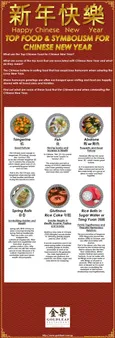
The Symbolism of Chinese Food